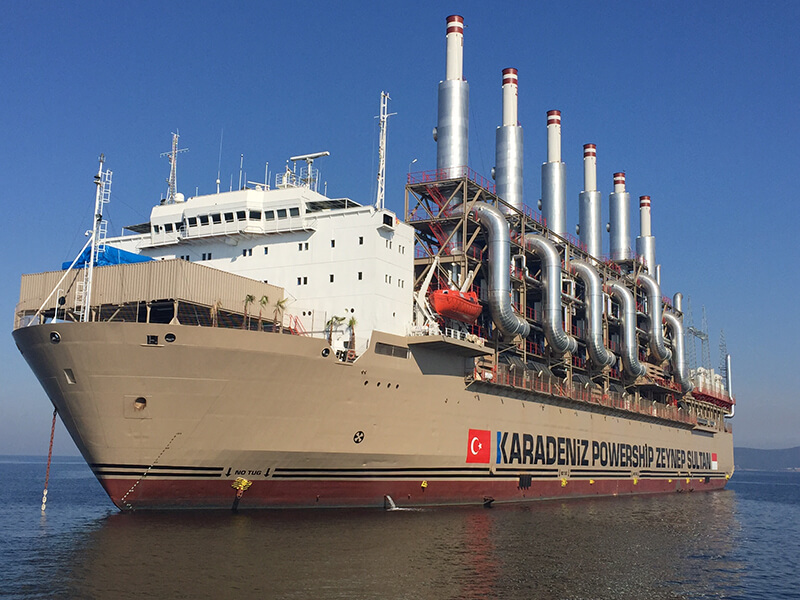South Africa, plagued by chronic power outages for years, may soon get some relief from an unlikely source: floating power plants.
A Turkish company called Karpowership has won environmental authorization for one of three ship-mounted power plants it wants to connect to the South African grid. This is a key step in fulfilling a contract it won over two years ago.
Karpowership said the Department of Forestry, Fisheries, and the Environment gave it permission to go ahead with the installation of a 450-megawatt gas-fired plant in the northeastern port of Richards Bay. The company has also applied to install a 450 MW plant in the southern port of Ngqura and a 320 MW plant in the western port of Saldanha.
The projects will make an important contribution to combating South Africa’s energy crisis, the company said in a statement on Friday. The company claims its power ships can provide reliable and affordable electricity within months.
Karpowership won about 60% of a government tender in March 2021 to supply 2,000 MW to ease chronic power shortages in the country. The tender was part of an emergency procurement program to address an electricity shortfall of about 4,000 MW.
However, none of the winners in the tender are up and running due to various delays and challenges. Karpowership’s environmental authorization applications have been the subject of several legal challenges from environmental activists. They have objected to the company’s planned use of gas, a fossil fuel, and the potential impact of its power ships and associated gas storage vessels on sea life and small-scale fishing. A court case by a rival bidder that failed to win a contract also delayed Karpowership from implementing its plans.
South Africa has suffered almost daily power outages since about September last year, sometimes for as long as 10 hours or more a day, because state power utility Eskom Holdings SOC Ltd. can’t meet demand. Eskom, which generates about 95% of the country’s electricity, has struggled with aging coal plants, breakdowns, mismanagement, and corruption scandals.
The power cuts have hampered economic growth and recovery in Africa’s most industrialized nation, grappling with high unemployment, poverty, and inequality. The government has pledged to reform the energy sector and diversify the energy mix by introducing more renewable sources.
Karpowership, which operates in 11 countries across Africa, Asia, and Latin America, says it can help South Africa transition to a low-carbon future by providing flexible and scalable power solutions. The company says it uses liquefied natural gas (LNG), which has lower emissions than coal and diesel and can be replaced by green hydrogen.
The company also says it will create jobs, support local businesses, and contribute to social development programs in the communities where it operates. It says it has complied with all the legal and regulatory requirements and is ready to deliver power immediately.
While Karpowership still faces some hurdles before it can proceed, such as completing its agreements with the national ports company and securing gas supply contracts, its environmental approval is a significant milestone that brings hope to millions of South Africans desperate for stable and affordable electricity.
Source: Bloomberg



